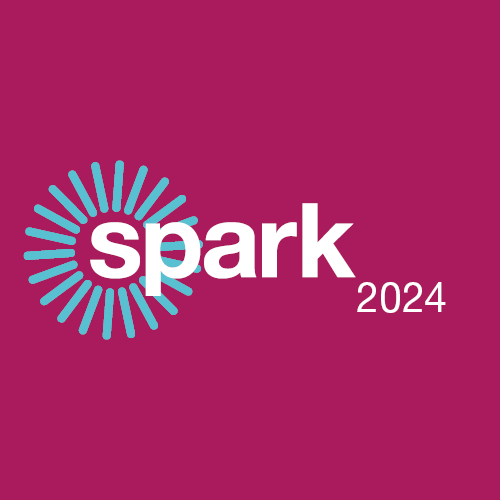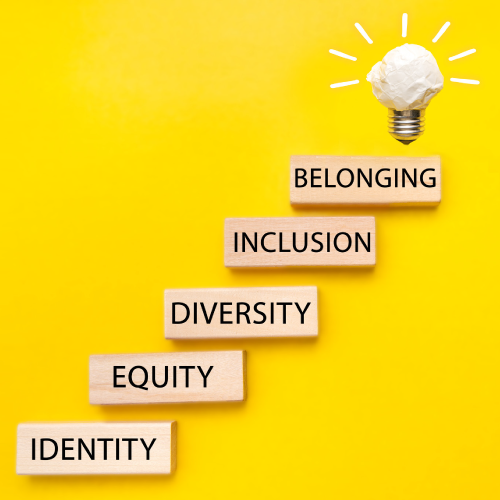November 16, 2021 @ 12:00 pm – 4:00 pm EST
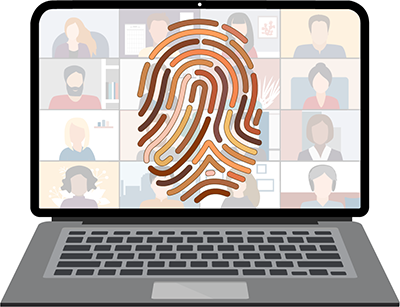
November Session: Nov. 2, 9, 16
Programming is offered each day from noon-4 p.m. ET with two short breaks.
Participation Rates
- Workshop: $650
- Intercultural Development Inventory® (IDI®): $288
Given the continued emergence of an interconnected society, a global pandemic, and protests and unrest calling for racial justice, building organizational capacity for advancing equity, diversity, and inclusion is more critical than ever. The need for leaders within social sector organizations to understand and engage the current environment is essential in building an equitable society for all.
This journey begins by ensuring all people feel valued at work. It mandates the co-creation of an inclusive workforce that can foster the development of a healthy, productive, and peaceful society in which all people can participate and reach their full potential.
During this virtual workshop presented by Social Current, participants will explore their relationships with equity, diversity, and inclusion (EDI) in a safe environment and make progress on developing an EDI action plan for their organizations.
Because advancing EDI requires more than just basic knowledge and the will to improve, presenters will help participants understand their own biases as well as the role of historical discrimination, non-inclusive behavioral actions, and culture in creating an unjust society.
The workshop will include presentations of valuable information, facilitated discussions, reflection opportunities, and dedicated planning time. In addition to learning about core concepts, participants will put ideas into action with facilitated planning time. Everyone will have the opportunity to begin developing action plans for advancing their organizations’ EDI journeys. As such, organizations are encouraged to send multiple employees that together can develop or work on current EDI plans for advancement.
About the Intercultural Development Inventory® (IDI®)
To be equipped to advance equity within your community, organization, and beyond, it is essential to also understand and advance your personal journey. Enhance your participation in this workshop with the Intercultural Development Inventory® (IDI®), which provides valuable and actionable information about your own mindset/skillset toward cultural difference and commonality. The IDI®, a 50-item online questionnaire, has been developed and tested using rigorous cross-culturally validated psychometric protocols with over 220,000 respondents from a wide range of cultural groups and countries.
Add this assessment to your workshop registration to receive practical and in-depth information. Individuals will receive a customized IDI® Individual Profile Report and participate in a 60-minute one-on-one debrief session with Alliance-COA Director of Evaluation and Research Phyllis Richards to discuss their results and develop a plan to meet their personal intercultural development goals. Richards is a qualified administrator of the IDI® and has more than a decade of experience in working collaboratively to address systemic racism and improve cultural competency.
- How EDI has changed over time within the U.S. as a result of legislation
- Understand the skills needed to advance your EDI personal journey
- How biases, racism, and incivility are barriers to building an EDI-enriched workplace culture
- Understand their organization’s phase of EDI maturity, and how to move to the next phase
- A multi-faceted approach for co-creating an organizational culture that fosters EDI
- Options for addressing critical current issues
- How to structure an organizational plan to advance EDI using results-based strategies
- Create the skeleton plan with facilitator support
- Staff responsible for diversity, equity, and inclusion
- Human resources professionals
- Organizational development professionals
- Executives
- Board members
- Executive search firms
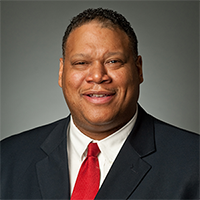
Undraye Howard, PhD
Senior Director of Equity, Diversity, Inclusion, and Engagement, Alliance-COA
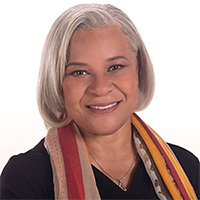
Sheryl White, PhD
Vice President of Training and Organizational Development, Neighborhood House Association
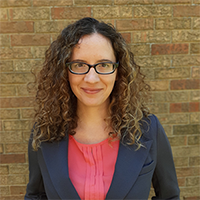
Jerica Broeckling, M.A.
Engagement Partner
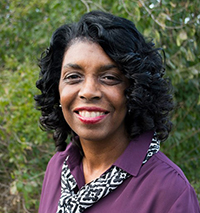
Phyllis Richards, M.A., M.S.
Director of Evaluation and Research Services, Alliance-COA
Related Events
December 7, 2021 @ 12:00 pm – 1:00 pm EST

Many organizations recognize the need to lead from a deep and genuine culture of race equity. This starts with people—emerging leaders, senior leaders, board members, and more—growing individually and in their respective roles. However, it can be difficult to know where to start in advancing equity, diversity, and inclusion (EDI). Simply mandating or promoting EDI in the workplace is not enough. To realize the benefits, organizations must treat EDI as any other critical resource and commit to building the right infrastructure to support it.
Advancing EDI internally requires more than just the knowledge and will to act. Staff must also understand the multiple ways in which bias unconsciously manifests in our daily lives and working relationships. Building on brain function research and behavioral science, participants will learn about the bias traps we fall into, what causes them, and what can work to reduce and/or eliminate them.
What You’ll Take Away
- The foundations of implicit bias in brain function and culture
- Common ways that implicit bias is present in the workplace
- Self-reflection on potential biases and strategies to begin reducing them
Who Should Participate
- Organization staff
- Public policy staff
- Community advocates
Presenters

Jerica Broeckling
Engagement Partner

Phyllis Richards
Director of Equity, Diversity, and Inclusion and Research
Social Current
Related Events
November 2, 2021 @ 11:00 am – 3:00 pm CDT

Programming is offered each day from 11 a.m.-3 p.m. CT with two short breaks.
Participation Rates
- Workshop: $650
- Intercultural Development Inventory® (IDI®): $288
Given the continued emergence of an interconnected society, a global pandemic, and protests and unrest calling for racial justice, building organizational capacity for advancing equity, diversity, and inclusion is more critical than ever. The need for leaders within social sector organizations to understand and engage the current environment is essential in building an equitable society for all.
This journey begins by ensuring all people feel valued at work. It mandates the co-creation of an inclusive workforce that can foster the development of a healthy, productive, and peaceful society in which all people can participate and reach their full potential.
During this virtual workshop presented by Social Current, participants will explore their relationships with equity, diversity, and inclusion (EDI) in a safe environment and make progress on developing an EDI action plan for their organizations.
Because advancing EDI requires more than just basic knowledge and the will to improve, presenters will help participants understand their own biases as well as the role of historical discrimination, non-inclusive behavioral actions, and culture in creating an unjust society.
The workshop will include presentations of valuable information, facilitated discussions, reflection opportunities, and dedicated planning time. In addition to learning about core concepts, participants will put ideas into action with facilitated planning time. Everyone will have the opportunity to begin developing action plans for advancing their organizations’ EDI journeys. As such, organizations are encouraged to send multiple employees that together can develop or work on current EDI plans for advancement.
About the Intercultural Development Inventory® (IDI®)
To be equipped to advance equity within your community, organization, and beyond, it is essential to also understand and advance your personal journey. Enhance your participation in this workshop with the Intercultural Development Inventory® (IDI®), which provides valuable and actionable information about your own mindset/skillset toward cultural difference and commonality. The IDI®, a 50-item online questionnaire, has been developed and tested using rigorous cross-culturally validated psychometric protocols with over 220,000 respondents from a wide range of cultural groups and countries.
Add this assessment to your workshop registration to receive practical and in-depth information. Individuals will receive a customized IDI® Individual Profile Report and participate in a 60-minute one-on-one debrief session with Alliance-COA Director of Evaluation and Research Phyllis Richards to discuss their results and develop a plan to meet their personal intercultural development goals. Richards is a qualified administrator of the IDI® and has more than a decade of experience in working collaboratively to address systemic racism and improve cultural competency.
- How EDI has changed over time within the U.S. as a result of legislation
- Understand the skills needed to advance your EDI personal journey
- How biases, racism, and incivility are barriers to building an EDI-enriched workplace culture
- Understand their organization’s phase of EDI maturity, and how to move to the next phase
- A multi-faceted approach for co-creating an organizational culture that fosters EDI
- Options for addressing critical current issues
- How to structure an organizational plan to advance EDI using results-based strategies
- Create the skeleton plan with facilitator support
- Staff responsible for diversity, equity, and inclusion
- Human resources professionals
- Organizational development professionals
- Executives
- Board members
- Executive search firms

Undraye Howard, PhD
Senior Director of Equity, Diversity, Inclusion, and Engagement, Alliance-COA

Sheryl White, PhD
Vice President of Training and Organizational Development, Neighborhood House Association

Jerica Broeckling, M.A.
Engagement Partner

Phyllis Richards, M.A., M.S.
Director of Evaluation and Research Services, Alliance-COA
Related Events
November 9, 2021 @ 12:00 pm – 4:00 pm EST

November Session: Nov. 2, 9, 16
Programming is offered each day from noon-4 p.m. ET with two short breaks.
Participation Rates
- Workshop: $650
- Intercultural Development Inventory® (IDI®): $288
Given the continued emergence of an interconnected society, a global pandemic, and protests and unrest calling for racial justice, building organizational capacity for advancing equity, diversity, and inclusion is more critical than ever. The need for leaders within social sector organizations to understand and engage the current environment is essential in building an equitable society for all.
This journey begins by ensuring all people feel valued at work. It mandates the co-creation of an inclusive workforce that can foster the development of a healthy, productive, and peaceful society in which all people can participate and reach their full potential.
During this virtual workshop presented by Social Current, participants will explore their relationships with equity, diversity, and inclusion (EDI) in a safe environment and make progress on developing an EDI action plan for their organizations.
Because advancing EDI requires more than just basic knowledge and the will to improve, presenters will help participants understand their own biases as well as the role of historical discrimination, non-inclusive behavioral actions, and culture in creating an unjust society.
The workshop will include presentations of valuable information, facilitated discussions, reflection opportunities, and dedicated planning time. In addition to learning about core concepts, participants will put ideas into action with facilitated planning time. Everyone will have the opportunity to begin developing action plans for advancing their organizations’ EDI journeys. As such, organizations are encouraged to send multiple employees that together can develop or work on current EDI plans for advancement.
About the Intercultural Development Inventory® (IDI®)
To be equipped to advance equity within your community, organization, and beyond, it is essential to also understand and advance your personal journey. Enhance your participation in this workshop with the Intercultural Development Inventory® (IDI®), which provides valuable and actionable information about your own mindset/skillset toward cultural difference and commonality. The IDI®, a 50-item online questionnaire, has been developed and tested using rigorous cross-culturally validated psychometric protocols with over 220,000 respondents from a wide range of cultural groups and countries.
Add this assessment to your workshop registration to receive practical and in-depth information. Individuals will receive a customized IDI® Individual Profile Report and participate in a 60-minute one-on-one debrief session with Alliance-COA Director of Evaluation and Research Phyllis Richards to discuss their results and develop a plan to meet their personal intercultural development goals. Richards is a qualified administrator of the IDI® and has more than a decade of experience in working collaboratively to address systemic racism and improve cultural competency.
- How EDI has changed over time within the U.S. as a result of legislation
- Understand the skills needed to advance your EDI personal journey
- How biases, racism, and incivility are barriers to building an EDI-enriched workplace culture
- Understand their organization’s phase of EDI maturity, and how to move to the next phase
- A multi-faceted approach for co-creating an organizational culture that fosters EDI
- Options for addressing critical current issues
- How to structure an organizational plan to advance EDI using results-based strategies
- Create the skeleton plan with facilitator support
- Staff responsible for diversity, equity, and inclusion
- Human resources professionals
- Organizational development professionals
- Executives
- Board members
- Executive search firms

Undraye Howard, PhD
Senior Director of Equity, Diversity, Inclusion, and Engagement, Alliance-COA

Sheryl White, PhD
Vice President of Training and Organizational Development, Neighborhood House Association

Jerica Broeckling, M.A.
Engagement Partner

Phyllis Richards, M.A., M.S.
Director of Evaluation and Research Services, Alliance-COA
Related Events
October 26, 2021 @ 3:00 pm – 4:00 pm CDT
As fundraisers and marketers, we can play a powerful role in dismantling racism. Our messages influence our communities. Our language can help shape policy. Our words carry currency. How we talk about it matters. Every philanthropic and nonprofit organization has an extraordinary opportunity and responsibility to do better. Frankly, society’s need for many of the programs and services provided by the human-serving sector stems from systemic racism. Until we name that, we cannot create the real and lasting change with families and communities that our mission statements loftily promise.
For an organization to put equity at the center of its mission, values, and leadership, it must look deeply into all aspects of agency operations—including fundraising and marketing. Guided by two expert fundraising and marketing professionals, this webinar will candidly explore how the language of fundraising, use of illustrations, and characterizations of clients can contribute to their marginalization and oppression. We also will discuss strategies and tactics that likely reinforce negative attitudes by donors towards those in the community served. Special emphasis will be given to the problems that have been perpetuated because of the overwhelming lack of diversity among professionals in the field, evident in the majority percentage of fundraisers who are white (79%).
Topics for discussion will include:
- Moving to community-centric instead of donor-centric fundraising
- Honoring clients’ life experiences and hard work in partnering with organizations and donors
- Hiring fundraising and marketing staff of color proportionate to communities served
- Using language, illustrations, and photos that honor and represent our communities
- Involving the whole organization and board members in supporting equity, diversity, and inclusion
- Authentically engaging with all organizations in the community, particularly the NAACP, Urban League, LGBT centers, and other local or regional groups
- Implementing a sample list of effective steps to avoid a repeat the failures described in the 1968 Report of the National Advisory Commission on Civil Disorders (i.e., the Kerner Commission Report)
- Talking with funders about supporting equity in your community with their investment
The presenters will share the knowledge gained from their experiences in highly diverse communities. All have made strides toward greater equity, diversity, and inclusion in their organizations and will offer practical solutions. Both are white leaders who are committed to using their voices and their privilege to become better allies.
Participants will be encouraged to share their stories of success, however large or small. The presenters will invite questions throughout the session to ensure there is clarity and a diversity of ideas for solutions discussed. A custom toolkit of action items, checklists, and tips to advance equity in marketing and fund development will be distributed.
This presentation is sponsored by the Alliance-COA’s Fundraising, Marketing, and Communications Peer Exchange, which serves as a place to make connections, share ideas, and ask questions among professionals working in fund development, marketing, communications, and public relations. Participants in this community also have access to a comprehensive library of resources, including a variety of materials on multiple topics designed to assist with creating a fund development plan, engaging board members in fundraising, building a brand strategy, and staying current with ever-changing digital trends, among many other vital fundraising, marketing, and communications functions.
What You’ll Take Away
- Resources for beginning your own EDI journey and centering your work through an EDI lens, including opportunities to consider how you have or plan to abandon stereotypes in your communications and how to have honest conversations with donors about racism
- A deeper understanding of the critical role organizational communications play in shaping the perceptions of the organization held by clients, philanthropic donors, contracting entities, public and private marketing partners, and the public
- Appreciation for the corrective actions needed for stereotypes among clients and these stakeholders
- Awareness of fundraising, marketing, and communications’ role and responsibility in ensuring authentic EDI engagement across the organization; these include assessments, services, outreach, and especially staffing representative of the makeup of the community, e.g., POC, API, indigenous peoples, First Americans, LGBTQAI+
Who Should Join
- Chief development officers
- Fund development staff
- Marketing staff
- Chief executives
- COOs
- Board members
Presenter
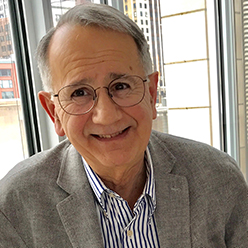
Leonard P. Iaquinta
Principal
Len Iaquinta’s Excellence in Communications Inc.
Len Iaquinta is a career fundraiser of millions of dollars in major gifts, grants, and periodic funds. Recognized as a strategic thinker, he is passionate about improving the culture of philanthropy. He augments the performance of nonprofit organizations in fund development and public communication. Iaquinta advises the Nonprofit Development Certificate Programs of the University of Wisconsin-Parkside and teaches six-hour modules. He often presents regional and national workshops. Iaquinta is a past two-term board member and a 20-year member of the steering committee of the Fundraising, Marketing and Communications Peer Exchange of Alliance-COA.
Following study at Northwestern University (B.S.J.) and Columbia University in the City of New York (M.S.J.), he joined the Academy for Educational Development in New York City. There he raised funds from the U.S. government and private foundations and staffed projects including the reporting of human behavior, minority recruitment into journalism, and higher education management.
He led the United Way of his hometown and devoted 30 years to successful university fundraising and alumni programming at his alma maters and public campuses. As a board member and officer, he has led human development services agencies to improve their philanthropic performance and enhance their public reputations during his 52-year career. Iaquinta has been a leader in the LGBTQAI+ community since 1971.
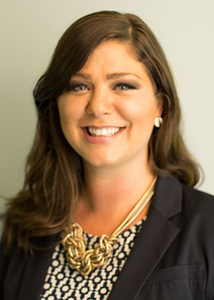
Jocelyn Mourning
Vice President of Advancement
The Family Conservancy
Jocelyn Mourning is a fundraising and communications expert focused on helping children grow up in healthy communities with thriving families so they may experience well-being throughout their lives. She is passionate about Kansas City families and was born and raised in the KC Metro. Mourning has been overseeing the increasingly successful fundraising events, grants, and other donor relations at The Family Conservancy, a 140-year-old nonprofit, since 2012.
She holds a fundraising certificate from the Midwest Center for Nonprofit Leadership at the University of Missouri – Kansas City’s Bloch School of Management, is a CFRE (Certified Fund Raising Executive), and also has marketing and sales experience in the for-profit sector. Mourning is co-chair of the Fundraising, Marketing, and Communications Alliance-COA Peer Exchange Group core team.
Related Events
From President Biden’s clear call for unity to poet laureate Amanda Gorman’s impassioned reading of her poem “The Hill We Climb,” this morning’s inauguration ceremony delivered the unifying message our country desperately needs to move forward to create a just and equitable society where all people and communities flourish.
Today, on his first day in office, President Biden signed 17 executive orders on issues ranging from the COVID-19 crisis and the economy, to climate change and racial justice. We were pleased to see an executive order on advancing racial equity and supporting underserved communities. This order creates a whole-of-government initiative to advance racial equity, directing federal agencies to undertake a baseline review of the state of equity within their agencies, launches an equitable data working group, and directs agencies to engage with communities who have been historically underrepresented, underserved, and discriminated against in federal policies. Importantly, this executive order revokes the previous administration’s order that limited the ability of federal government agencies, contractors, and grantees from implementing critical diversity and inclusion training. The Alliance for Strong Families and Communities co-led a letter, signed by 41 other organizations, opposing the original Trump executive order in October of 2020.
We also applaud actions taken today to prevent workplace discrimination on the basis of sexual orientation or gender identity, the extension of the moratorium on evictions and foreclosures until at least March 31, and the extension of the pause on student loan payments until at least Sept. 30. At a time when our economy is struggling, these actions will provide needed relief and begin to move our country in the right direction. While these are only first steps on so many critical issues, they represent the actions required to power us forward…together.
The Alliance for Strong Families and Communities is merging with the Council on Accreditation to form a new organization that will convene and catalyze a dynamic, inclusive, multifaceted network of human and social services organizations and passionate allies committed to achieving greater impact in communities across our country.
The inauguration and President Biden’s address this morning has led to feelings of hope and optimism as we work together to create this new collaborative and unified organization. Our job now is to rally and inspire our community of social heroes and essential workers. Our responsibility, as a social sector, must be to continue efforts to work together to address the larger needs in our nation.
Today, more than ever, we look forward to engaging our network and harnessing the power of the social sector to create a brighter bolder future.
Sincerely,

Jody Levison-Johnson
President and CEO
Alliance and COA
In many ways, this last year has created a crossroads for human service organizations. The effects of the COVID-19 pandemic have placed children and families of color at greater risk, with disproportionate impact on Black communities. Demands for a reckoning on racial injustice and inequity in this country have called for fundamental and overdue changes to systems, institutions, and practices.
COA is committed to an accreditation process that supports organizations to advance equity, diversity, and inclusion. Our work to focus on racial and other inequities includes identifying where our accreditation standards can be strengthened to reflect the expertise, lived experiences, and strategies at the forefront of anti-racism work, and also highlighting areas of current practice where organizations should look to address discrimination and disparity.
In this post, we highlight some of those key areas that speak to equity, diversity and inclusion, such as community involvement and advocacy; representation in the workforce; training content; data collection and measurement; and culturally responsive service provision.
Community involvement and advocacy
Human service organizations do not exist in a bubble. They are shaped and often constrained by the same systemic biases and inequities that exist in legislation, policies, regulations, and funding streams. Ongoing community involvement, that includes outreach, education, and advocacy, is one way organizations can leverage available resources for the communities they serve and amplify the voices of their stakeholders. Our governance standards reflect the importance of partnership and communication within the community to effect change within organizations, communities, and in the systems of which they are a part.
GOV 3.02
The organization conducts ongoing community outreach and education to:
- communicate its mission, role, functions, capacities, and scope of services;
- provide information about the strengths, needs, and challenges of the individuals, families, and groups it serves;
- build community support and presence and maintain effective partnerships; and
- elicit feedback as to unmet needs in the community that can be addressed by the organization as its top advocacy priorities.
Examples: Examples of public outreach and education activities may include:
- regular communication with the media and the general public;
- informing the public of the positive impact the organization’s programs are having on the community and its residents; and
- fostering positive relationships with the local media.
By building relationships and deeply engaging communities, organizations can identify unmet needs and build coalitions with the capacity to advocate for legislation and policies that will positively impact children, adults, and families. Organizations connect people to services, support, resources, and neighbors. COA promotes collaboration as a way for organizations to refine and leverage their service array and stay responsive to changing community needs. The standards emphasize the importance of collaboration within the organization and community at large through sustained communication across stakeholder groups.
GOV 3.03
The organization collaborates with community members and persons served to advocate for issues of mutual concern consistent with the organization’s mission, such as:
- making improvements to existing services;
- filling gaps in service to offer a full array of community supports;
- the full and appropriate implementation of applicable laws and regulations regarding issues concerning the service population;
- improved supports and accommodations for individuals with special needs;
- addressing community-specific needs including cultural and linguistic diversity; and
- service coordination.
Representation in the workforce
COA is intentional about communities served being represented throughout an organization, from program staff to executive leadership to the governing body. It is vital that the people served feel connected to and identify with the people and organizations with whom they are involved. A key part of assuring representation in the workforce is managing recruitment efforts that includes a diverse applicant pool. Recognizing that this process is important to an organization’s workforce assessment, the human resources (HR) and service standards speak to specific recruitment criteria, such as cultural identities and relevant lived experience, along with retention support.
HR 2.01
Job descriptions and selection criteria:
- state the credentials, job expectations, core competencies, essential functions, and responsibilities for each position or group of like positions;
- include sensitivity to the service population’s cultural and socioeconomic characteristics; and
- are reviewed and updated regularly to evaluate their continued relevancy against the needs and goals of the organization’s programs and persons served.
Examples: Credentials can include, for example: education, training, relevant experience, competence in required role, recommendations of peers and former employers, and any available state registration, licensing or certification for the respective discipline.
RTX 2.01
Residential counselors, youth workers, adult care, and child care workers have:
- a bachelor’s degree or are actively, continuously pursuing the degree;
- the personal characteristics and experience to collaborate with and provide appropriate care to residents, gain their respect, guide their development, and participate in their overall treatment program;
- the ability to support constructive resident-family visitation and resident involvement in community activities;
- the temperament to work with, and care for, children, youth, adults, or families with special needs, as appropriate; and
- the ability to work effectively with the treatment team and other internal and external stakeholders.
Training content
In the human services sector, the workforce often does not adequately reflect the people and communities served, particularly when it comes to race and ethnicity. To address this gap, it is imperative that organizations ensure that personnel have the knowledge, awareness, support, interest, and skills necessary to effectively engage people with whom they may not share the same privileges, identities, cultural practices, or other lived experiences. Our training standards reflect the belief that staff cannot serve people effectively without a comprehensive understanding of the systemic forces, including racial bias and discrimination, that continue to shape the lives of generations of individuals and families.
TS 2.04
Training for direct service personnel addresses differences within the organization’s service population, as appropriate to the type of service being provided, including:
- interventions that address cultural and socioeconomic factors in service delivery;
- the role cultural identity plays in motivating human behavior;
- procedures for working with non-English speaking persons or individuals with communication impairments;
- understanding bias or discrimination;
- recognizing individuals and families with special needs;
- the needs of individuals and families in crisis, including recognizing and responding to a mental health crisis;
- the needs of victims of violence, abuse, or neglect and their family members; and
- basic health and medical needs of the service population.
Ensuring professional learning opportunities for all staff is essential to combating inequity in organizations where people from historically marginalized communities are frequently underrepresented in leadership roles and experience obstacles to advancement. COA’s training standards require organizations to maintain culturally responsive personnel development plans to ensure that staff have the competencies needed not only to fulfill their existing roles, but also to advance in their field and in the organization. The standards emphasize the importance of utilizing a wide array of educational methods and evaluating training effectiveness in a way that considers varying learning styles, needs, and professional development goals.
TS 1.01
A personnel development plan:
- is reviewed annually and revised in accord with an assessment of the organization’s training needs;
- incorporates a variety of educational methods;
- is responsive to the history, cultural backgrounds, and related needs of personnel;
- outlines specific competency expectations for each job category;
- provides the opportunity for personnel to fulfill the continuing education requirements of their respective professions; and
- provides opportunities to support advancement within the organization and profession.
Examples: Educational methods can include, but are not limited to:
- interactive classroom trainings;
- webinars, self-paced trainings, or other computer-assisted training models;
- coaching; and
- structured peer support opportunities.
Data collection and measurement
In order to recognize and better understand patterns of systemic racism in human services and formulate just solutions, organizations need to have the right tools to evaluate where and how disproportionality and disparity exist. COA’s Performance and Quality Improvement (PQI) standards provide the framework for implementation of a sustainable, organization-wide PQI system that increases the organization’s capacity to make data-informed decisions thatsupport achievement of performance targets, program goals, positive outcomes, and level of satisfaction experienced by the staff and people served.
Organizations can identify disproportionality and address disparity in outcomes by tracking indicators according to race/ethnicity and other demographic variables. Data analysis is key to addressing racial disparity at all levels of decision-making, from strategic and annual planning to program evaluation.
PQI 5.01
Procedures for collecting, reviewing, and aggregating data include:
- cleaning data to ensure data integrity including accuracy, completeness, timeliness, uniqueness, and outliers;
- quarterly aggregation of data; and
- developing reports for analysis and interpretation.
PQI 5.04
The organization:
- reviews PQI findings and stakeholder feedback and takes action, when indicated; and
- monitors the effectiveness of actions taken and modifies implemented improvements, as needed.
Culturally responsive service provision
The damaging effects of institutional racial inequality are particularly evident in the child welfare system, where Black and brown children and families are disproportionally represented, experience service inequities, and have significantly poorer outcomes as a result. The Family Foster Care and Kinship Care (FKC) and Public Child and Family Services (CFS) standards speak directly to the necessity of culturally relevant and responsive service provision, including identifying appropriate services for birth families, assessing and training prospective resource families, and strengthening each child’s support network.
FKC 19.03
Resource parents receive training and support to demonstrate competency in:
- supporting and facilitating children’s emotional, physical, and legal permanency;
- meeting children’s developmental needs across life domains, including addressing any developmental delays;
- caring for a child of a different race, ethnicity, culture, religion, sexual orientation, or gender identity;
- supporting children’s social identity development;
- supporting and facilitating family relationships, friendships, cultural ties, and community connections;
- collaborating with family team members and service providers; and
- managing the caregiver role, self-care, and the impact on the family.
When it has been determined to be unsafe for a child to remain with their family, prioritizing placement with relative caregivers/kin and recruiting diverse foster or resource parents are key practices for ensuring that child’s connection to their communities and their cultural identities remain. Additionally, annual resource family recruitment plans should include targeted outreach activities that reflect the needs and characteristics of children in care. COA’s standards emphasize the importance of providing the support, investment, and resources necessary to address the unique needs of kinship caregivers in service to the children, families, and communities that they and the organizations with whom they partner serve.
FKC 7.03
In order to ensure children are in the most family-like and familiar setting possible, the organization makes reasonable efforts to ensure children are placed:
- with siblings;
- with kin; and
- with families that reside within reasonable proximity to their family and home community.
COA is committed to ending systemic racism, oppression, and discrimination, and will continue to push forward standards of best practice that are relevant; reflect our commitment to equity, diversity, and inclusion; and support human services organizations in making positive, meaningful, and lasting impact in their communities.
As we continuously assess where the accreditation standards can be strengthened and further informed by best practices in anti-racism work, we want to hear from you. Please share your experiences and feedback about advocacy, staff development, training, and collecting outcomes by race at the link below. We welcome your input.
We at COA love what we do because we are passionate about promoting practices that will serve the greater good. Equity, diversity, and inclusion (or, as someone at COA recently put it, “belonging”) are critical components of that. We cannot truly do good work and better our communities if we are not also working to ensure that every community member can be safe, belong, and access equal opportunity.
The road to fully realized equity, diversity, and inclusion is constant and requires no small amount of collaboration and introspection. If your organization is committed to embedding these efforts in every facet of your work, you might be at a loss of where to begin. Don’t stress! We’ve pulled together some of the resources we’ve drawn best practice inspiration from to help get you started. This list captures a fraction of the information available out there, so we encourage you to continue your learning.
Do you have a resource to recommend? Post in the comments below!
Why Diversity, Equity, and Inclusion Matter for Nonprofits—This goes through not only the “how” of implementing a Diversity, Equity, and Inclusion plan, but also the “why” (whether your organization is a nonprofit or not). It provides several tools for embedding EDI into work at all levels of an organization.
* * *
Harvard Implicit Association Test—This test is included in the article above, but it’s worth highlighting for itself. We cannot honestly approach this work without first grappling with any biases we ourselves may hold. This simple test is meant to help individuals recognize their own implicit bias.
* * *
The MSW@USC Diversity Toolkit—A Guide to Discussing Identity, Power, and Privilege—Looking for specific exercises that you can conduct with your team? The University of Southern California Suzanne Dworak-Peck School of Social Work has created several to help you engage your team in this work.
* * *
Racial Equity Resource Guide Glossary—In order to facilitate communication and avoid misunderstandings around sensitive issues, it’s important that everyone is using the same language. The W.K. Kellogg Foundation has pulled together a glossary to help you and your team get on the same page.
* * *
The Alliance Equity, Diversity, and Inclusion resources, webinars, and group discussion forums—One of COA’s founding organizations and close partner, The Alliance for Strong Families and Communities, has a diverse spread of resources to help organizations work toward a just, fair, and inclusive society that contributes to everyone’s well-being. From tools to places for conversation, you’ll find it here.
* * *
What’s the Difference Between Diversity, Inclusion, and Equity?— Though this General Assembly blog post is geared toward tech companies, its content applies to everyone. In it you’ll find a good breakdown of the differences between diversity, inclusion, and equity and how they’re related. There are also a few basic exercises that may be helpful for individuals to do on their own or with colleagues to further clarify the definition of each.
* * *
Diversity, equity, and inclusion consultants share a script to respond to racist microaggressions at work so you know exactly what to say in the moment—This article from Business Insider could be helpful particularly for staff of color, because it talks about how to approach and respond to microaggressions. It’s also helpful to organizations for learning about microaggressions and how they may or may not be perpetuated in the workplace.
* * *
Urgently Looking for Anti-Racism Training for Your Company? Start Here.—This Medium article gives a blunt examination of where diversity, equity, and inclusion efforts at an organization often stand, which can provide a kick in the pants to get things started. It offers a nice set of questions and points to consider when engaging in diversity, equity, and inclusion efforts.
* * *
11 Books To Read If You Want To Be A More Inclusive Leader—This post from Forbes provides a great roundup of books that take on different aspects of EDI work. Each helps leaders (or aspiring leaders) to enhance “soft” skills and tackle implicit or unconscious biases to become more inclusive. It’s a great place to dive deeper into specific areas of interest and is sure to provide great food for thought for professional development work or even staff book clubs.
* * *
Racial Equity Tools Library —Hungry for more resources than are offered here? This is a great database of information and tools to support individuals and organizations working to achieve racial equity. This library is the product of a collaboration between several social policy focused national organizations, it offers tools, research, tips, curricula and data for anyone to use and learn from. Here you will find resources about justice at every level – in systems, organizations, communities and the culture at large.
What resources (publications, writers, researchers, etc.) have been helpful to you or your organization in promoting equity, diversity, and inclusion? Share them in the comments below!


